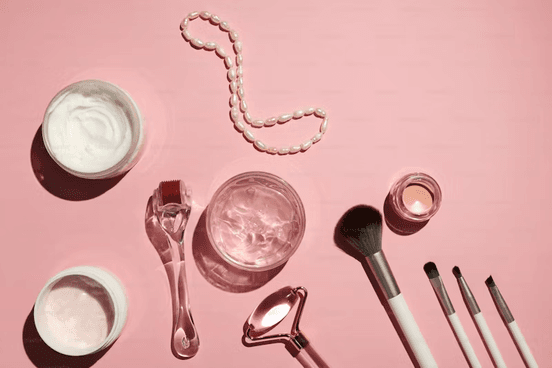Rosacea is a common skin condition associated with flushing or long-term redness, which is caused by enlarged blood vessels and small, pus-filled bumps. When flare-ups occur, they may last anywhere from weeks to months before they disappear and return. This condition is most common among those who burn easily in the sun, are between 30-50 years of age, have a smoking history, and have a family history of it.

The “Why?”
Although there is no definite cause for the development of rosacea, scientists have narrowed down a couple of factors that may contribute to it, including blood vessel abnormalities, unusual inflammation, disruption of the skin barrier, and genetics.
An overactive immune system may also play a role. For example, the human leukocyte antigen (HLA) complex is a family of a variation of genes that work together to identify proteins belonging to foreign invaders. Unfortunately, some of these variations can inflame the skin, contributing to rosacea.
The glutathione s-transferase (GSTs) genes are also thought to be involved, as they produce proteins that protect the cells from oxidative stress. But certain variants of them reduce the ability of the skin to protect itself against inflammation, leading to a higher risk of developing rosacea.
While the specifics of these factors are unknown, one thing that is known is that poor hygiene cannot lead to rosacea, and it is therefore not contagious. Other daily habits however, can play a role in flare-ups:
Sun or wind
Hot drinks
Spicy foods
Alcohol
Very hot/cold temperatures
Emotional stress
Exercise
Drugs that dilate blood vessels (ex blood pressure medicines)
Some cosmetic, skin, and hair care products
Treatment
Similar to other skin conditions like eczema, there is no cure. The only way to treat it is to figure out your triggers and to adjust your routine accordingly. Visiting a dermatologist for a proper diagnosis who can advise a detailed treatment plan is recommended. Along with this, using sun protection, and taking gentle precautions with the products used and the way you handle your skin should be done for better improvement.
Sources
1. Rosacea - Symptoms and causes. Mayo Clinic. https://www.mayoclinic.org/diseases-conditions/rosacea/symptoms-causes/syc-20353815#:~:text=The%20cause%20of%20rosacea%20is
2. Rosacea: MedlinePlus Genetics. medlineplus.gov. https://medlineplus.gov/genetics/condition/rosacea/#causes
3. National Rosacea Society | Rosacea.org. www.rosacea.org. Published February 27, 2024. https://www.rosacea.org/?gad_source=1&gclid=CjwKCAiAxaCvBhBaEiwAvsLmWGHeW8SrIBF0vZ0V-ylsBvsvk668qAKy0Lgx8vhYvQXkAJd2b-YH3RoCpgsQAvD_BwE
4. Rosacea: Diagnosis and treatment. www.aad.org.
https://www.aad.org/public/diseases/rosacea/treatment/diagnosis-treat
Author: Selena Chan


